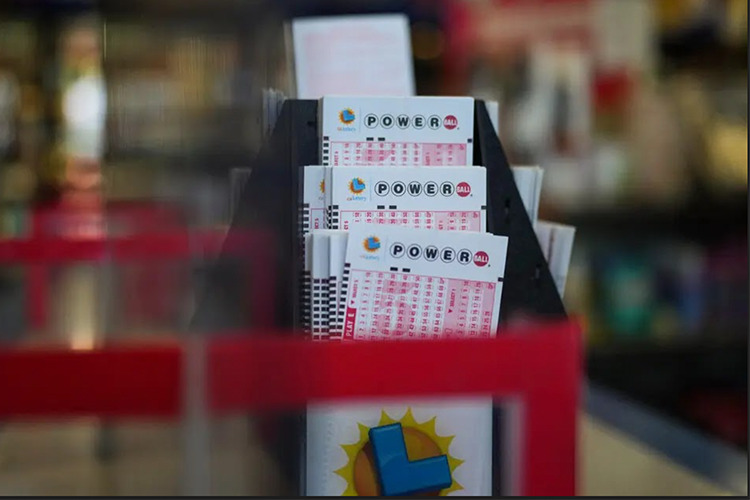
Just a $2 Powerball ticket sold in stores across the country will forever change the life of one lucky person, for better or worse. photo by Charlie Neibergall
A ticket was sold for the record-breaking $2.04 billion Powerball jackpot; how much is it really worth?
Many people dream of becoming billionaires, but for one lucky winner in California, that dream is now a reality. On Tuesday, November 11th, a Powerball ticket for a record breaking jackpot of $2.04 billion was sold in Altadena, California. The winner has yet to claim their massive prize, but when they do, they will have some important decisions to make that will determine how wealthy they truly are.
This enormous jackpot, however, might not be a record breaker for long due to Powerball organizers attempting to make lotteries more difficult to win. In 2015, the Powerball lottery added more number combinations, making it much less likely for a ticket to match all six numbers drawn. In doing so, the lottery created a 1 in 292 million chance of winning the jackpot, meaning that many drawings may pass without a winner. Each drawing that doesn’t produce a winner increases the size of the jackpot, thus encouraging more people to buy tickets. Powerball’s expansion into 45 states also raises ticket sales which helps fund these enormous prizes as the lottery directs more revenue to the jackpot.
However, in order to truly win the $2.04 billion jackpot, the winner must make a careful decision. The advertised prize is only awarded if the winner chooses to accept the money as an annuity payment in which they would receive annual payments of about $68 million for 30 years, therefore attaining the $2.04 billion. The winner could also choose the lump sum payment, where they would gain the money immediately, but they would only get $997.6 million. The annuity payment is higher because with this option, the lottery puts the money into an annuity for 30 years, similar to a savings account with a high interest rate. Victor Matheson, an accounting and economics professor with a Ph.D. in economics, encourages the winner to choose the annuity payment so they wouldn’t have to pay an estimated 37% in taxes on the lump sum value. As Matheson explained to Fortune Magazine, “You get to defer your taxes with the annuity in a way, because you don’t have to pay all of the taxes up front like you do if you take a lump sum.” However, some experts believe the lump sum is the better option due to investment opportunities. Lora Hoff, a certified financial planner, is one such example who told CNBC she believes she “would choose the lump sum payout because with proper financial advice you should be able to earn more over time than the annuity payout would give.”
Regardless of how they accept their prize, the winner will have other important choices to make. One move financial experts recommend is to remain anonymous in order to avoid attention and demands from loved ones about how to spend the money. The pressures of family can be enormous, as Sandra Hayes, who won the lottery in 2006, experienced. After she won, she felt the greed of her loved ones constantly asking her for money and told the Associated Press, “That caused a lot of emotional pain. These are people who you’ve loved deep down, and they’re turning into vampires trying to suck the life out of me.” While the winner might have ideas about what to do with their newfound riches, it will be beneficial to assemble a team of financial experts to advise how they might use their money, as many lottery winners make financial blunders due to inexperience managing wealth. There still lies the question of whether the winner should even claim their prize, as past lottery winners know the real impacts of winning. Donna Mikkin, who won in 2007, wrote in a blogpost that she thought she would be happy after winning the lottery but instead, “[She] became more concerned about how [she] was being judged and perceived, not realizing [she] was the one doing the judging in the first place. If you asked [her], [her] life was hijacked by the lottery.”